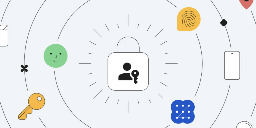Google will now make passkeys the default for personal accounts


arstechnica.com
Passkey is some sort of specific unique key to a device allowing to use a pin on a device instead of the password. But which won't work on another device.
Now I don't know if that key can be stolen or not, or if it's really more secure or not, as people have really unsecure pins.
You are viewing a single comment
Do you not use MFA at all then?
Authy on the phone while also using their desktop app. If you lose the phone you still have options.
Each to their own but cloud syncing and MFA are a bad mix in my eyes. It has a "who watches the watchmen" problem and it somewhat defeats the point of having a trusted factor when you have an untrusted one on "someone else's computer".
Authy have demonstrated why this is a problem (https://techcrunch.com/2022/08/26/twilio-breach-authy/), plus they're closed source, so it's a big no from me.
Vaultwarden, a FOSS Bitwarden server compatible with upstream clients, is able to store TOTP, and when self hosted, you are the watchmen.
Yeah, this is fine. It's closed source, opaque cloud solutions that people should be wary of.
I have the KeepassXC database with the TOTP thoroughly backed up, so nope.
So you are using MFA but for the password manager? (Appreciate that you're not the OP I was asking)
If your MFA is bound to a single device and you have no backup then you're doing it wrong.
You can accuse companies of doing it wrong by often only providing a single additional factor, but I don't see what that has to do with me.
What I'm hearing is that when an authenticator app is the only option, you'll go with nothing over something.
Perfection is the enemy of good after all.
Looks like I replied to the wrong comment.
The person you had replied to originally commented on not wanting to have the possibility of everything being broken by losing a single device. I think that's important that everyone realize that some sort of a backup plan is needed, whether that be back up codes, saving the original QR code, or being able to use multiple devices to authenticate.
At any rate, I should have replied to someone else. Sorry for any confusion.
No harm, no foul.
And you're very much right. There's a growing problem in consumer perceptions of modern security methods and how they should be applied. Much more time is spent justifying the convenience of proposed solutions, and not nearly enough time spent understanding what the scope is of the attack vectors that lead to these things needing to exist in the first place.
And further, why some of these conveniences - much like the reused-everywhere super-long password of yesteryear - are a danger in themselves.